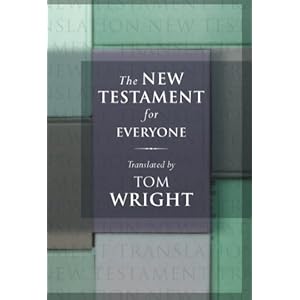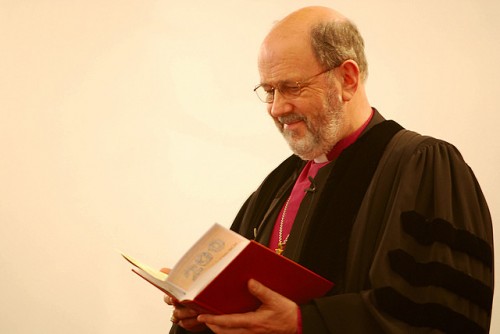For yesterday, 21st May, Harold Camping and his associates were predicting not just the Rapture but also worldwide earthquakes and Judgment Day. But nothing special seems to have happened. Yes, there was a landslide in Malaysia, which I mentioned in an earlier post, and a small volcanic eruption in Iceland. But these kinds of disasters, sad though they are for those involved, are everyday occurrences.

"We just went for a short walk and then ... poof ... gone ... um ... what's that smell? ... yikes! ... brimstone."
As far as I can tell from the news, no one has died from anything which could remotely be called an act of God’s judgment, and, despite some apparent photographic evidence, no one has been raptured either. I suppose somewhere in the world someone might have been trampled underfoot or suffered a heart attack because of rapture fever, but I hope not.
Meanwhile the BBC reports this morning that
the evangelist at the centre of the claim, Harold Camping, has not been seen since before the deadline.
This could mean that he has been raptured, or has died at age 89, but more likely that he is keeping a deliberately low profile. The BBC seems to have missed the news item I posted last night, that Camping’s Family Radio colleagues were conceding in advance that they might be wrong.
In the absence of any bodies I can’t really conduct a post-mortem. But I can offer a sort of post-non-mortem on this whole affair. What lessons can it offer for us, as Christians or as interested outsiders?
Firstly, I would say, we should never trust people like Harold Camping who set themselves up as teachers apart from the church as a whole. I’m not saying that such people are always wrong. Sometimes individuals, even ones without formal training like Camping, find truths in the Bible which have been ignored by the church as a whole. That is one reason why the doctrine of the perspicuity of Scripture is important. But this happens rather rarely. So others should treat any such claims with a lot of caution until they have broader confirmation. I’m sorry to say it, but the man who, according to the BBC report, “spent more than $140,000 (£86,000) of his savings on advertisements in the run-up to 21 May” was simply being foolish.
Secondly, we need to remember that Jesus clearly told us that the end would come unexpectedly, like a thief in the night. He warned that false prophets and apparent signs would mislead people, as indeed they have repeatedly for 2000 years. It is amazing that so many people who call themselves Christians don’t pay attention to this part of his teaching. Rather, as Jeremy Myers writes, while we should “Live like the world will end tomorrow”, we should also “Ignore all future predictions” and “Plan for the future”.
Thirdly, we need to understand better what the Bible really has to say about the future and the return of Jesus. I don’t want to go into details here. But as I have argued here in the past, I don’t believe that Christians will be raptured in the way that people like Camping teach, before the return of Jesus. Tim Chesterton has helpfully linked to a 2001 essay by N.T. Wright Farewell to the Rapture, in which the former Bishop of Durham explains convincingly why the Second Coming “won’t in any way resemble the Left Behind account”: in 1 Thessalonians 4:16-17
account”: in 1 Thessalonians 4:16-17
Paul’s mixed metaphors of trumpets blowing and the living being snatched into heaven to meet the Lord are not to be understood as literal truth, as the Left Behind series suggests, but as a vivid and biblically allusive description of the great transformation of the present world of which he speaks elsewhere.
Finally, there are lessons for the church on marketing. The well known secular expert in this field Seth Godin has today offered his marketing lesson from the affair, on his blog which I don’t usually read (thanks to my friend tweeting at Adbolts for the link):
Here’s the simple lesson:
Sell a story that some people want to believe. In fact, sell a story they already believe. …
I hope you can dream up something more productive than the end of the world, though.
Yes, Camping and friends have done their marketing well to spread their Rapture fever worldwide. I hope that Christians who have a truly biblical message to proclaim can learn better from this how to proclaim that message, not so much of God’s judgment as of his love, of how
God so loved the world that he gave his one and only Son, that whoever believes in him shall not perish but have eternal life.
John 3:16 (NIV 2011)







 The Northern Echo
The Northern Echo